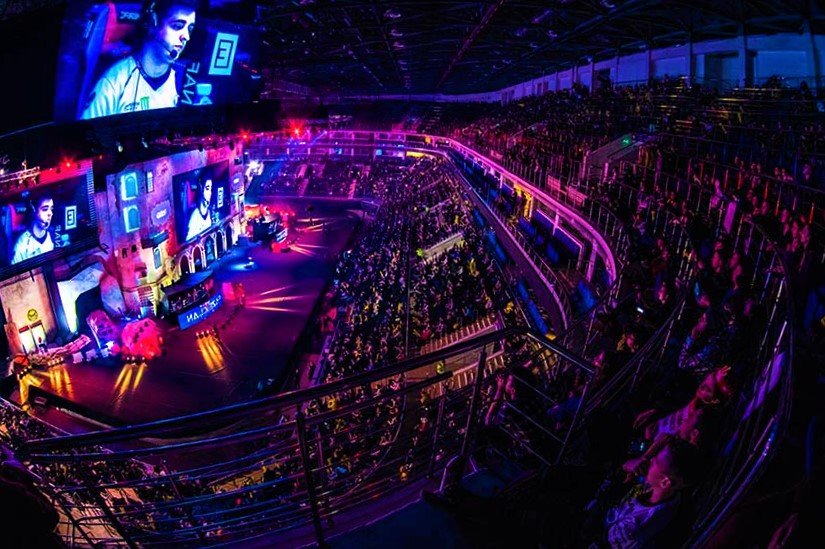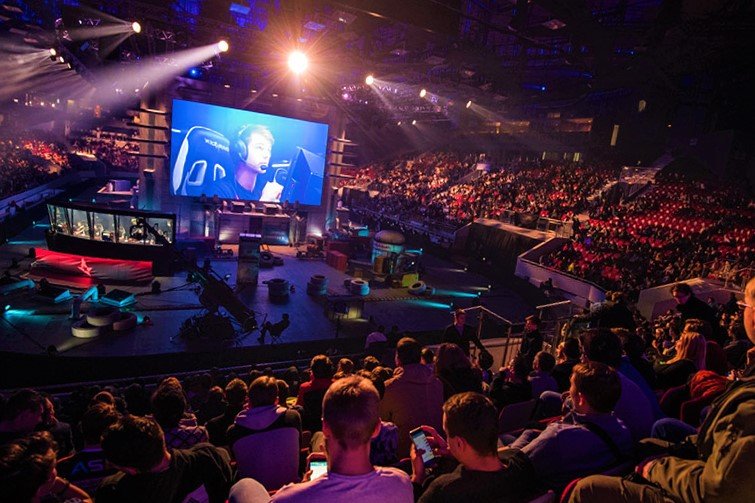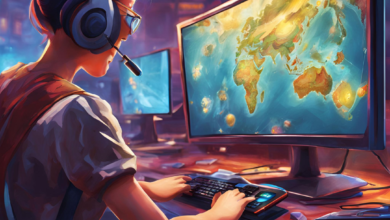esports games

esports games
Is esports a sport?
But there seems to be no definitive answer. The discussion is indeed ongoing. Which will last hundreds (even thousands) of years. Even the world’s greatest sporting event, the Olympic Games, has included (or banned) various “sports” since its inception in the 8th century BC. Esports has become controversial nowadays.

Definition of sport
Free online glossaries give different definitions: Sport is an activity that involves physical and recreational effort, skill, or competition. One significant aspect of this definition is the degree of emphasis on the physical aspect of the sport.
According to the Oxford Dictionary, sport is an activity of physical effort and skill in which a person or team competes with each other or with others for fun. And Dictionary.com downplays the importance of fitness. How does the definition of an athlete include hunting and fishing?
sports name.
These are sports activities that require skill or physical strength and are usually competitive in nature, such as running, baseball, tennis, golf, bowling, weightlifting, boxing, hunting, fishing, etc.
It comes down to one word. This is and/or a difficult question to answer. Physical effort and skill versus physical effort or skill. Wikitionary.org chose the word “or” but added the requirement for a set of rules. On the other hand, the American Heritage Dictionary insists on the need for both. The Merriam-Webster Dictionary chose a very different definition: sport, noun. Transmission source: Entertainment.
Choose one of the drivers and esports games are compatible with it. Or choose a different definition and it will be difficult for you to say for sure. Conservatives tend to focus on physical activity. But contemporaries are moving towards a more global vision of the sport. Can esports be considered a sport? We can take a look at what some experts have to say about this.
sports organizations
The European Sports Charter defines sport as “all forms of physical activity which, through informal or organized participation, aim at demonstrating or improving physical fitness and mental health by establishing social relationships or achieving competitive performance at all levels”.
When considering this definition, at first glance it may seem that esports is not a sport. It can also limit a number of other activities that are commonly considered “sports”. But if you look closely at the components of this definition, then it includes the following:
- All forms of physical activity: Esports is mostly non-physical. But in order to compete well, esports players need a lot of physical endurance. Keep in mind that many motorsports and air racing require more physical endurance than pure physical strength. But at the end of the day, the definition provides for the word “everything”, which is an all-encompassing word for everything.
- informal or structured participation. More than three-quarters of teenagers in the US play video games (informally). Organized electronic game contests have also grown into a multi-million dollar industry.
- Strive to maintain or improve physical fitness and mental health. Many sports (such as running, golf, and polo) do not require fitness as a primary goal. But it still boosts their sanity. This is found in esports.
- Build social relationships: Video game fans can form strong social relationships with gamers they’ve never met in person. Esports teams have taken the social aspect of gaming to the next level by turning the virtual gaming experience into a real social relationship.
Compete at all levels: esports competition is a competitive arena for high schools, universities and professional esports fans. These competitions may take the form of online competitions held virtually for players of all levels.

Others take a broader view of what should be considered a sport. The IOC (through the IOC Organization of Recognized International Sports Federations (ARISF) has recognized chess and bridge (along with motorsport and aviation) as permitted sports. The largest organization covering all sports, the World Association of International Sports Federations (GAISF) approved) above .
This association has recognized a number of non-traditional and non-physical sports. Among them: games of bridge, chess and checkers. The association includes representatives from organizations involved in a variety of sports, from traditional games such as tennis, hockey and American football, to less popular games such as mini golf, tug of war and dog sledding.
The World Association of International Sports Federations (GAISF) is the de facto representative of international sports. If he allowed sports such as mostly physical sports (boxing and football) and games based on thinking like (chess and bridge) and games based on coordination skills like (darts and billiards), and mechanical games such as (air sports and motorcycle racing). ) and support for animal games such as polo and esports certainly fit that description as well.
Sports versus other recreational activities
Sports depend on entertainment, from fans to members of official local leagues. From high school athletes to social club members. It’s all about how we spend our free time. But professional players don’t think so. The sport they do is their business and their job. As far as their followers are concerned, they view sports as entertainment, whether in the stands or at home, they view sports as entertainment and a break from their daily duties.
Entertainment covers a wide range of activities. But what do Americans prefer? Watch TV, chat and use your computer when you are not working. Sport ranks fifth after reading. The “Other Activities” category includes everything from gardening to crossword puzzles. But most of them have nothing to do with most definitions of sport.
What makes an activity a sport? Sport has the following characteristics that distinguish it from gardening, reading and other similar activities:
- Physical effort and/or physical condition and skills
- configuration
- Standard/Agreed Rules
- Competition between two people or two or more teams
- Scoring or other evaluation methods to determine the winner
- Entertain the audience
Sports vs Competition: The ESPN Factor
Another aspect of this multi-faceted discussion is how sport differs from other competitive activities. Where countless contests are held every year around the world in almost everything imaginable, like eating contests or wife carrying contests!! There are also hoop competitions, sheep breeding competitions, and children’s races that take place in the United States of America and other countries. There are even rock, paper and scissors competitions.
How do we decide what counts as a sport? So we reached out to ESPN for their thoughts on this. Considered “the first global sports network”. They have a lot of experience in all sports. This huge media conglomerate owns the rights to cover sports ranging from American college football and major league baseball to master golf and Formula 1 racing . . spectators than any Major League Baseball game that day. He has also covered the national Scripps spelling bee since 1994.
We can analyze that ESPN considers spelling and sparring to be the smallest sport. And the woman’s pregnancy, too, but not to the same extent. (ESBN has at least written a hilarious article on the subject, but has never aired stories on the subject before.)
ESPN and esports
What is the place of this leading network in the world of e-sports sports? In 2014, ESPN President John Skipper had this to say about esports: “It’s not a sport, it’s a competition… Mostly I play real sports.”
Some might consider this fake given that the network has covered live fishing and poker tournaments in the past. (Not to mention the hot dog eating contest.) Then a few months later, the network periodically aired and covered an esports game called “College Champions”. The two-hour show featured students competing in Heroes of the Storm with commentary from other players. This was the beginning of coverage of esports events and competitions.
In 2016, ESPN added a dedicated esports section to its website. They can be found on the site in the context menu along with the NFL, boxing and rugby leagues. The coverage was as comprehensive and vibrant as any other sport on this list. (However, poker and spelling are not included in the list, severely limiting the smaller games covered by ESPN and those that deserve to be featured on its main page.)
In March 2019, it was announced on the ESPN Events page that it would host the first ever college esports tournament.
Definition of sport in school and university, part one
At the college level, the National Collegiate Athletic Association (NCAA) has gone to great lengths to include physical activity in its definition of sport. And he hasn’t added any esports games to his list. Nor does the National Association of Intercollegiate Athletics (NAIA), though it lists cheerleading, dance, and bowling competitions all fueling debate about whether they are… “sports”. But in a sign of the rise of the esports movement, the National Association of Intercollegiate Athletics (NAIA) published an article in 2014 about university pioneer Robert Morris adding esports to the university’s esports program. Speaking of which, the National Collegiate Athletic Association sponsored the 2019 NCAA Annual Conference.
Despite the limited definition of a sport, it is clear that the NCAA is moving towards recognizing esports as a legal college sport. In 2017, the Beach Belt Conference hosted the League of Legends championship at one of the NBA stadiums, all tickets for which were sold out. The Beach Belt Conference, in addition to esports, also draws on its official plan for the sports it supports. Are other conferences still far from this?
And with Riot Games creating its own League of Legends student organization, there have been reports that the NCAA has held lengthy and in-depth research and meetings to discuss adding esports games. Are they serious? In 2018, the NCAA board of directors called an enlarged meeting to consider the issue. Other topics covered include: How the NCAA Corporation develops esports tournaments. Should these games be considered winter or summer games?
Meanwhile, Ohio State got around the NCAA decision and signed a partnership with the Electronic Games Association. The Electronic Games Association is now divided into two main parts, the High School Electronic Games Association and the College Electronic Games Association.
A good sign is the creation of the National Association of Collegiate Electronic Sports (NACE), which has an independent board of directors. It was created in July 2018 and its non-commercial goals were clear. It must support its member institutions by “developing the infrastructure and tools necessary for the development of esports games in universities.” The National Association of Collegiate Electronic Sports (NACE) works with its members to shape admissions standards, graduation paths, competitions and scholarships.
The National Association of Collegiate Electronic Sports (NACE) is the only association that supports collegiate esports programs in the United States. It consists of:
- Over 130 universities.
- More than 3000 student-athletes.
- $15 million in esports scholarships and aid.
- annual national conference.
- Special orientation service (audio program) for officials, coaches, etc.
As of January 2018, over 94% of college esports programs in the US have become members of the National Association of Collegiate Electronic Sports (NACE). Topics for the 2019 National Conference included:
- Where should your program be launched: for athletes, scientists or students?
- Formation of esports
- Build and equip a place for electronic sports games
- Prepare a budget for your esports program
- Student Participation: Outside the Playground
It also included an “Exercise and Nutrition for Esports” session. Sounds like a real sport, right? One of the sponsors of this conference is the National Association of Intercollegiate Athletics (NAIA) mentioned above. (So the NCAA is far from supporting this?).
Universities themselves have rapidly increased their participation in esports competitions. In 2016, only seven universities had esports programs. But in 2018, 63 universities competed in this field. The National Association of Collegiate Electronic Sports (NACE) now includes more than 130 universities.
Definition of sports at school and university, part two
The National Federation of Public High Schools (NFHS) is the governing body for most high school sports in the United States. While this federation forms an umbrella for educational sports activities, there are only three lists of activities: music, performance/discussion/theatre, and spiritual activities. Other activities include popular sports ranging from baseball to weightlifting.
The National Federation of Public High Schools (NFHS) maintains the “Other Sports” category, which includes bowling, esports, golf, and tennis. It accepts electronic sports games. The high school athletics director admits that esports is a sport.
High schools and universities are following the same path when it comes to implementing esports. They lag behind their counterparts in higher education. Less centralized control.
Many organizations are currently competing to offer students admission to competitive college exams. The High School Electronic Sports League (HSEL) is the largest in the country with over 1,500 members. New PlayVS has taken the lead in this regard through an exclusive contract with the National Federation of Public High Schools (NFHS). Competition (YEA), High School Esports Federation (EGFH), and North American Schools Esports Federation (NASEF).
In addition to these local competitions, some states and regions organize esports competitions. For example, Orange County, California, Connecticut, Illinois, Ohio, and Michigan have created their own esports competitions.
Are electronic games considered sports? final opinion
It seems that the sport has actually become a cultural perspective. When you ask: “What is sport?” Answers will vary by time and geographic coverage. Bullfighting is the local national sport in Spain. While the ancient Mexicans played “field hockey” with a flaming ball. No one in the previous generation could have imagined that skateboarding would become the Olympics. (The International Olympic Committee has agreed to add it to the 2020 Summer Olympics) In the United States of America, the National Football League (NFL) is starting to decline in popularity. By 2021, the esports audience is expected to surpass all professional sports except the NFL.
Universities and high schools — even parents and teachers — see competitive esports as a positive activity for students. Many are fiercely protective of esports as a sport. Perhaps the point of view of educator and educational technology specialist Chris Aviles is compelling, given his background and personal experience.
I was a good athlete in high school , played a lot of sports in college and coached him for ten years. But I really like competitive video games, and I’m pretty good at them. With experience in both fields, I can say that eSports is just as important to the social and emotional development of students as any other sport. E-sports athletes are also athletes. All the personal, social and emotional skills that you have acquired while playing football, weightlifting, running and rugby can also be developed through electronic games.
We can take one last look at the characteristics of the sport defined above.
- Physical Effort and/or Fitness and Skills: Esports games require effort, fitness, and reaction time.
- Composition: There are many recreational competitions at the high school and university levels with recognized regulators.
- Standard/Agreed Rules: The above organizations and organizations have developed rules and regulations for esports competitions.
- Competition between two people, two or more teams: There are hundreds of esports competitions, thousands of teams and an endless number of esports athletes in the United States of America alone.
- Scoring or other evaluation methods to determine a winner: Esports competitions and tournaments keep track of scores and winners.
- ENTERTAINMENT VIEWERS: Millions of people around the world watch esports for fun and entertainment. It also covers major media networks such as ESPN as well as online media such as Twitch and provides live and esports coverage to audiences around the world.
What do you think ? Is esports a sport? At the time of this writing, we would say yes, absolutely!




One Comment